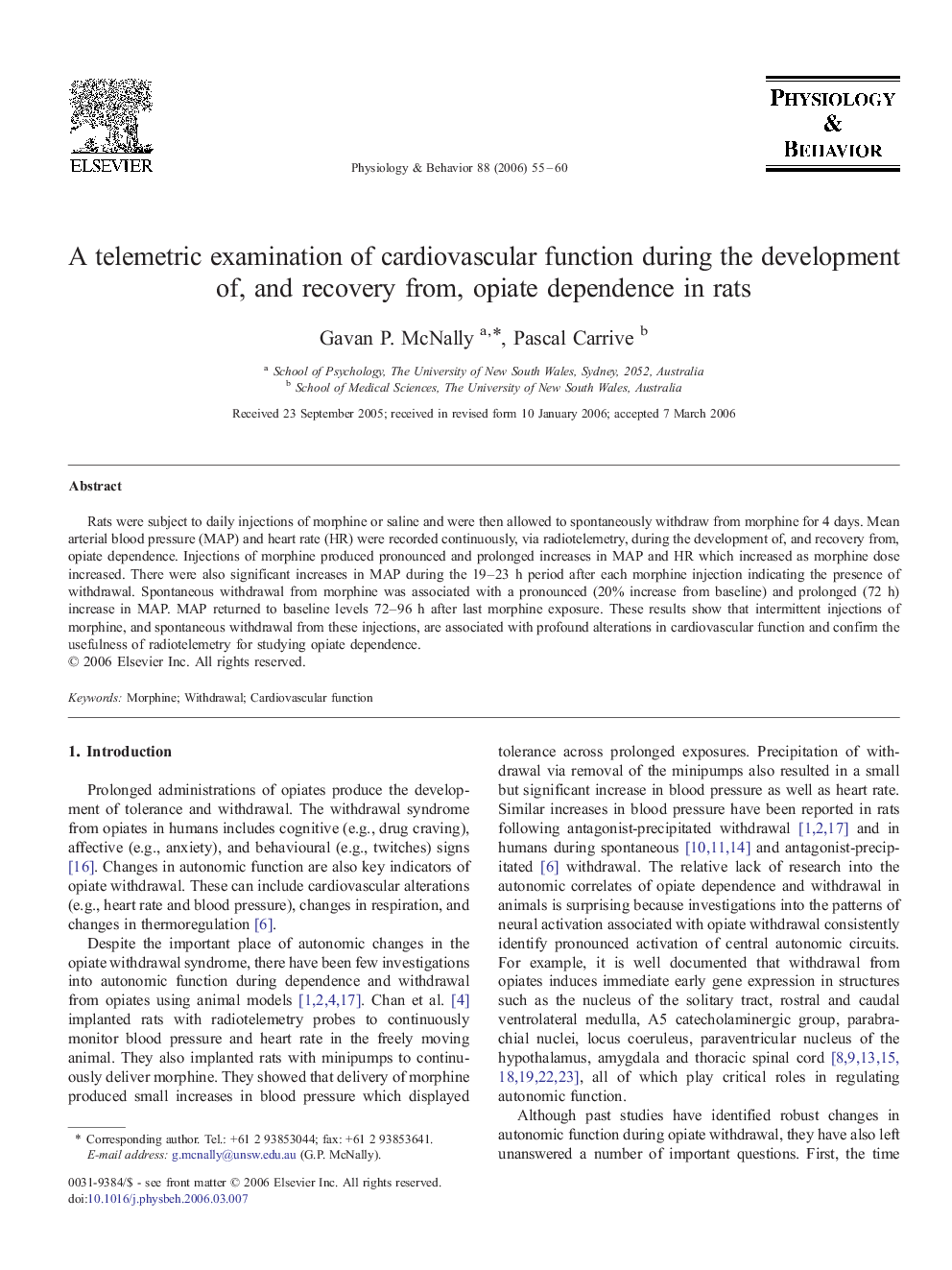| Article ID | Journal | Published Year | Pages | File Type |
|---|---|---|---|---|
| 2846391 | Physiology & Behavior | 2006 | 6 Pages |
Abstract
Rats were subject to daily injections of morphine or saline and were then allowed to spontaneously withdraw from morphine for 4Â days. Mean arterial blood pressure (MAP) and heart rate (HR) were recorded continuously, via radiotelemetry, during the development of, and recovery from, opiate dependence. Injections of morphine produced pronounced and prolonged increases in MAP and HR which increased as morphine dose increased. There were also significant increases in MAP during the 19-23Â h period after each morphine injection indicating the presence of withdrawal. Spontaneous withdrawal from morphine was associated with a pronounced (20% increase from baseline) and prolonged (72Â h) increase in MAP. MAP returned to baseline levels 72-96Â h after last morphine exposure. These results show that intermittent injections of morphine, and spontaneous withdrawal from these injections, are associated with profound alterations in cardiovascular function and confirm the usefulness of radiotelemetry for studying opiate dependence.
Related Topics
Life Sciences
Biochemistry, Genetics and Molecular Biology
Physiology
Authors
Gavan P. McNally, Pascal Carrive,
